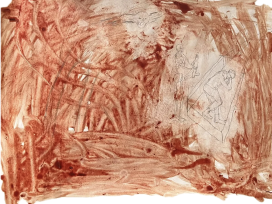
For those who suffered the consequences of Yalta’s division of Europe, the Helsinki Final Act brought grounds for optimism. Today, as Russia’s regressive war on Ukraine reopens old conflicts, it stands as a monument to European modernity.
Oleksandra Matviychuk of Kyiv’s Center for Civil Liberties was awarded the Democracy Defender Award in Vienna on 24 February 2016. The prize, awarded annually, is the initiative of 16 country delegations to the Organization for Security and Co-operation in Europe (OSCE). The following text is based on Matviychuk’s acceptance speech.
I represent the civil initiative Euromaidan SOS, which was created in response to the brutal actions of the Ukrainian authorities during the dispersal of peaceful student demonstrations in November of 2013. We brought together thousands of ordinary people to provide legal protection for protesters. Every day, a large number of people passed through our care. People who had been arrested, beaten, tortured, confronted with trumped-up criminal charges; later, we assisted with cases of fatalities among protestors and of those who went missing.
For the second time in the last ten years, the Ukrainian people rose to defend their choice to build a democratic state based on values held in common with European countries. We paid a rather high price.
After the fall of Ukraine’s authoritarian regime, in order to put a stop to the democratic transformation of the country, Russia occupied Crimea and started a hybrid war in Donbas. Murders, abductions, torture, sexual violence, human shields, political persecutions on the occupied territories – all this has become our reality.
Today we gather victims’ evidence and document these violations in the interests of securing international justice. At the same time, we struggle to reform the services that police, courts and prosecutors provide, so that in the future we do not face a situation where our government shoots unarmed demonstrators.
In this regard, I would like to share a few lessons that we have learned from these events:
1. In many countries, human rights activists aren’t just working to protect human rights, they are in fact fighting every day for human rights. Often it seems almost hopeless. However, we should do our work honestly. Our efforts can achieve unexpected results.
2. When people succeed in having authorities recognize human rights, often in practice it means only one thing. For it is not the authorities but civil society actors that need freedom of association, the right to a fair trial and civil society oversight of police services. So the authorities’ recognition of human rights simply means that human rights activists win new tasks for themselves. This is why international organizations should see in civil society a partner on the same level as state authorities.
3. The so-called “Ukraine crisis” is in fact a direct reflection of a global crisis in the post-war world system. This is a crisis of values. The Universal Declaration of Human Rights is often and openly questioned. International human rights law has become a secondary concern. Civil activists, journalists, human rights defenders are persecuted and held in prisons in Azerbaijan, Russia, Kazakhstan, etc. Ongoing and fundamental change is occurring in the ideologies that, for decades, international organizations took as the basis of their work.
There is a great temptation to avoid solving difficult problems, to hope that they will just vanish. But the truth is that these problems are multiplying. There are new grey areas appearing on the map. This is not only about the future of the OSCE and the Helsinki Accords. It is about the entire world, where everything is interconnected and only the spread of freedom and human rights can provide safety.
Finding the solution to this crisis is our historic task. We must continue fighting for human dignity. Even if there is nothing left but words and our own example.
24 February 2016
Published 18 March 2016
Original in English
First published by Eurozine
© Oleksandra Matviychuk / Eurozine
PDF/PRINTSubscribe to know what’s worth thinking about.

For those who suffered the consequences of Yalta’s division of Europe, the Helsinki Final Act brought grounds for optimism. Today, as Russia’s regressive war on Ukraine reopens old conflicts, it stands as a monument to European modernity.

Artist Marharyta Polovinko’s creativity persisted in a tormented form through her experiences as a soldier on the Ukrainian frontline. The words of a recently called-up fellow creative and young family man provide a stark reminder that the Ukrainian military is buying Europeans time.